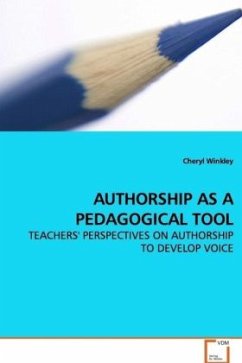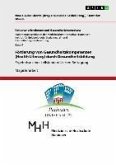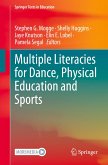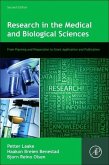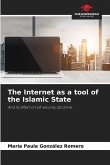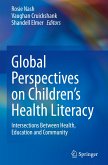This study explores the differences between
traditional teaching of writing as the acquisition
of communicative skills, and authorship in the
classroom, a pedagogy drawing on the work of Alma
Flor Ada and F. Isabel Campoy and grounded in
transformative education. This study asks whether
the use of authorship in the elementary classroom,
including authoring and self publishing books, has
an effect on the development of voices of students,
teachers, and parents. The study also explores the
need, use, and potential of assistive technology as
a tool to assist in the authorship process. Using
participatory research, dialogues with practicing
preschool and elementary school teachers,
administrators and teacher educators revealed the
significant impact of authorship on student literacy
and voice. It can also be used with assistive
technology to help students with special needs.
Authorship has an impact on the development of
teachers'' own voices and teaching effectiveness. It
also helps teachers understand their students and
improve relationships with students'' families.
Authorship unifies different
aspects of literacy and expands vocabulary.
traditional teaching of writing as the acquisition
of communicative skills, and authorship in the
classroom, a pedagogy drawing on the work of Alma
Flor Ada and F. Isabel Campoy and grounded in
transformative education. This study asks whether
the use of authorship in the elementary classroom,
including authoring and self publishing books, has
an effect on the development of voices of students,
teachers, and parents. The study also explores the
need, use, and potential of assistive technology as
a tool to assist in the authorship process. Using
participatory research, dialogues with practicing
preschool and elementary school teachers,
administrators and teacher educators revealed the
significant impact of authorship on student literacy
and voice. It can also be used with assistive
technology to help students with special needs.
Authorship has an impact on the development of
teachers'' own voices and teaching effectiveness. It
also helps teachers understand their students and
improve relationships with students'' families.
Authorship unifies different
aspects of literacy and expands vocabulary.

